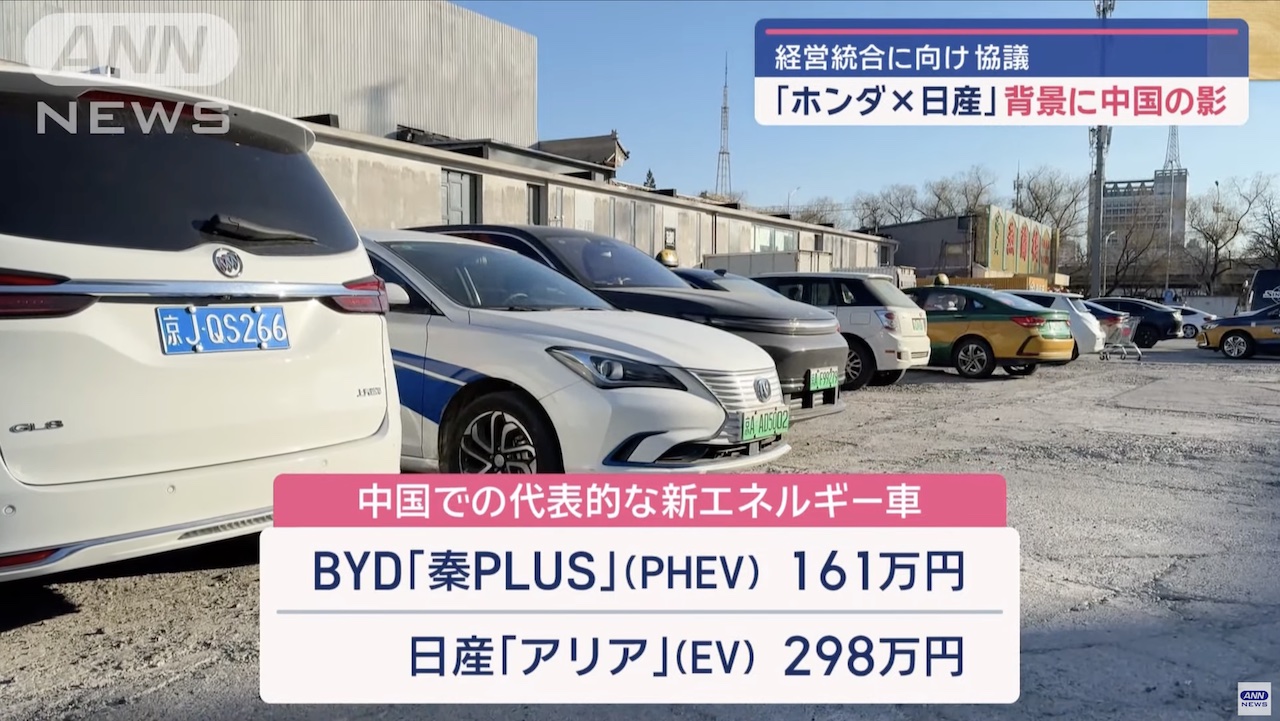TOKYO, Dec 18 (News On Japan) - Two of Japan’s leading automakers, Honda and Nissan, are reportedly advancing discussions on a management integration. The backdrop to this significant development appears to involve growing competition from China.
According to sources, Honda and Nissan are planning to establish a joint holding company under which both automakers would operate. They are also considering the potential involvement of Mitsubishi Motors, in which Nissan holds a majority stake, as part of the integration in the future.
Last year, Honda ranked 7th globally with 3.98 million vehicles sold, while Nissan followed at 8th with 3.37 million units. Should Mitsubishi Motors be included in the integration, the combined sales volume would exceed 8 million vehicles, propelling the group to third place globally.
The integration is believed to be aimed at tackling the rapidly evolving automotive market, particularly in electric vehicles (EVs) and autonomous driving technologies. Emerging Chinese manufacturers are gaining a strong foothold in these sectors, increasing the pressure on Japanese automakers to adapt.
Kiyoshi Komoda, President of the Japan Automotive Journalists Association, commented:
“With China’s advances in electric vehicles, including BYD entering the Japanese market, there’s a push to unite efforts and surpass China’s influence.”
Signs of this integration strategy were already visible during recent coverage in China.
Both Honda and Nissan have been struggling with weak sales in China. As of November this year, Honda’s sales in the country were down 30.7% year-on-year, while Nissan’s sales fell by 10.5%.
One key difference between Chinese and Japanese vehicles in China is price. For example, BYD’s Qin PLUS plug-in hybrid is priced at approximately 1.61 million yen, whereas Nissan’s Ariya electric vehicle is priced around 2.98 million yen.
Source: ANN
















